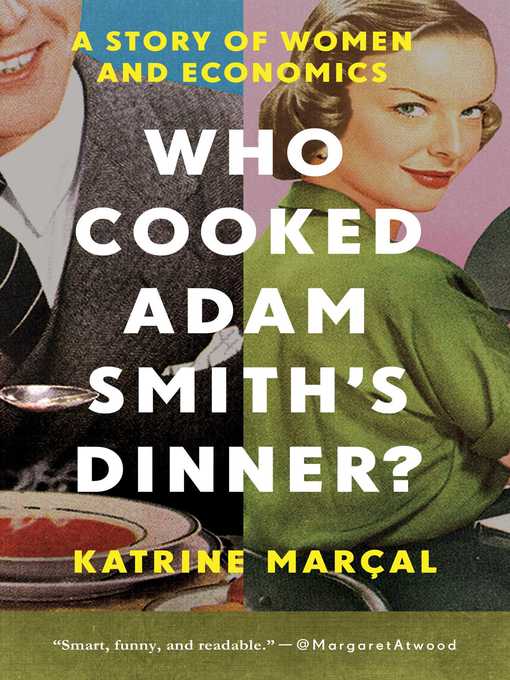
Who Cooked Adam Smith's Dinner?
- اطلاعات
- نقد و بررسی
- دیدگاه کاربران
نقد و بررسی

April 4, 2016
Journalist Marcal won several awards for the original Swedish edition of this book, but the translation, although wittily written, is meandering and slow-paced, making it a tough match for an American audience. Using Adam Smith’s iconic “economic man” as a trope on which to hang her argument, Marcal discusses the appeal of the narrative of the driven, profit-making man, which has left women—whose jobs have only shifted from in-home to out-of-home relatively recently—lagging. She suggests that “maybe the changes achieved by the women’s movement in the last 40 years... have simply highlighted an inherent contradiction in society between care work and competition.” Marcal’s discussion of the economic philosophy behind the gender wage gap and the “broken promises” of feminism is interesting, but the framing device of using historical figures such as Adam Smith (and the person in question who cooked his dinner—Margaret Douglas, his mother) never really gets off the ground. More narrative than prescriptive, more food for thought than fount of answers, this ambitious but too-slim book will have a hard time finding readers outside of the European market.

June 1, 2016
Marcal, a columnist for the Swedish paper Aftonbladet, examines the age-old economics question, "How do you get your dinner?" with thought-provoking results. Considering philosopher Adam Smith's concept of the "economic man," who was able to act in his own self-interest because there was always someone else there to prepare his meals, Marcal posits that as a result of not including other members of the population, this theory has produced a flawed model on which the world of business and economics is based. The author asserts that it isn't possible simply to replace "economic man" with "economic woman" because economic models don't account for work traditionally performed outside of the labor market, including housework and childcare. Marcal's analysis chronicles how this system of capitalism came to exist and demonstrates why the idea of the economic man may no longer be a solid fit. This humorous and accessible examination of serious issues at the crossroads of economics and gender equality is intended to stimulate questions more than to provide answers. VERDICT Recommended for readers interested in business, economics, feminism, and gender roles.--Elizabeth Nelson, McHenry Cty. Coll. Lib., Crystal Lake, IL
Copyright 2016 Library Journal, LLC Used with permission.




دیدگاه کاربران